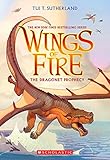One of the best Growth Mindset postings I’ve read!
Four Teaching Moves That Promote A Growth Mindset In All Readers
By Katrina SchwartzAPRIL 3, 2017Mind Shift
Some short excerpts:
“Most often teachers spend their time assigning what students should read and how they should show what they read, monitoring to make sure students have done what was asked, and making decisions about what students will do and how they will do it. Those roles make the teacher the main driver of the learning. In order to step back from those traditional roles, teachers have to replace them with new strategies.
“There’s a place for those three, but when that’s our main role there isn’t space for ownership and to develop that growth mindset,” Goldberg said. She coaches teachers to think of themselves in four very different roles, and to step back from constantly stepping in when students struggle. A big part of that is making it clear that struggle is part of reading, not a unique experience to students learning to read. It’s common to start a book and be confused, or to read a passage and miss something, but teachers don’t often make it clear how universal that experience is, no matter one’s reading level. Rather than being assignors, monitors and managers, Goldberg coaches teachers to see themselves as miners, mirrors, models and mentors”
I encourage you to watch the 7 minute video where Goldberg teaches us how to be miners, mirrors, models and mentors. The article continues with a description of these 4M roles.








